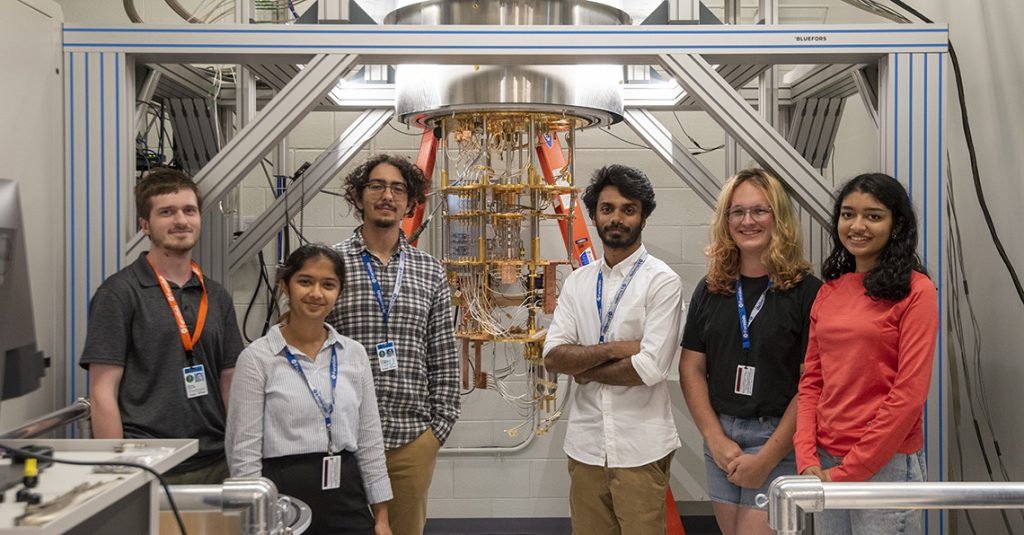Toward the quantum future
The Superconducting Quantum Materials and Systems Center, led by Fermi National Accelerator Laboratory, is one of five research centers funded by the U.S. Department of Energy as part of a national initiative to develop and deploy the world’s most powerful quantum computers and sensors.
SQMS brings together more than 400 experts from 28 partner institutions—national laboratories, academia and industry—in a mission-driven, multidisciplinary collaboration that integrates deep expertise in quantum information science, material science, applied and theoretical superconductivity, computational science, particle and condensed matter physics, cryogenics, microwave devices and controls engineering, industry applications and more.
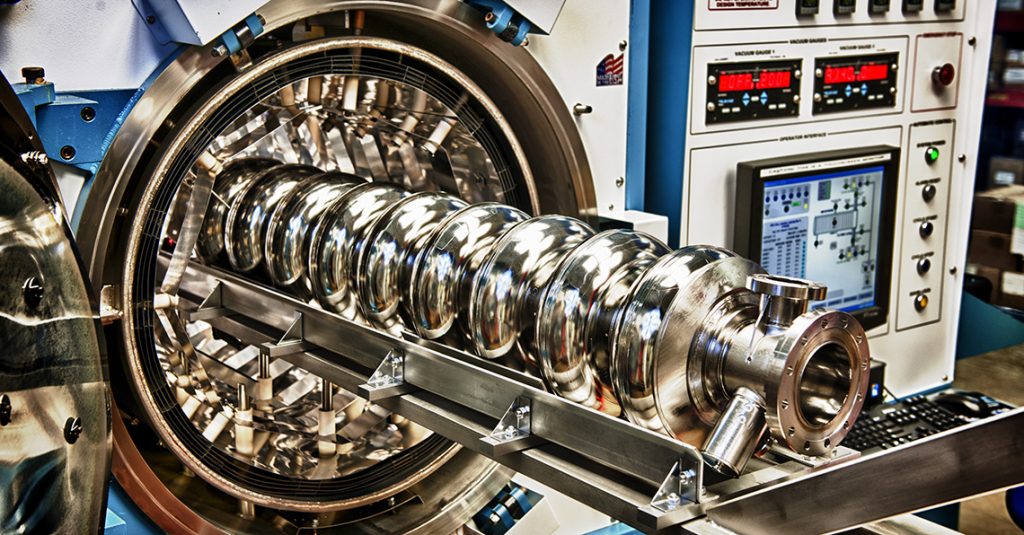
Ultrahigh-Q superconducting resonators
The SQMS Center uses world-record quality-factor superconducting radio-frequency, or SRF, cavities as ultra-sensitive quantum probes. Superconducting resonators are ideal for storing electromagnetic energy due to characteristically low energy loss when cooled to sufficiently low temperatures. The quality factor Q governs a device’s ability to store electromagnetic energy, which determines how long quantum information can be stored.
Superconducting transmon qubits and processors
One of the main devices used for quantum computing based on superconducting architectures is the transmon qubit, which relies on a component called a Josephson junction. In such a junction, a thin layer of electrical insulator is placed between two pieces of superconducting material. By carefully controlling an electrical current flow across the junction, researchers can store and manipulate quantum information. SQMS is on a mission to bring dramatic performance improvement to these devices.
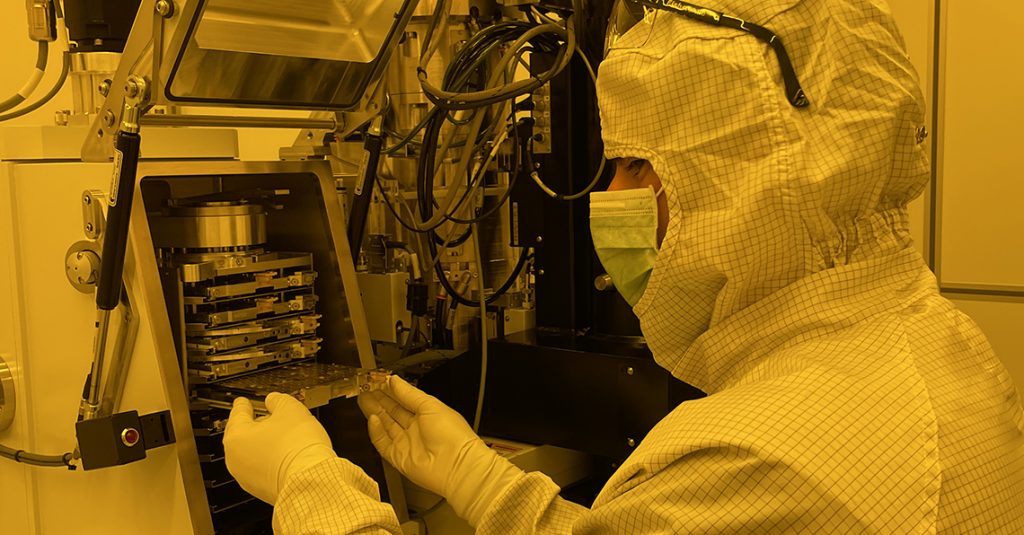
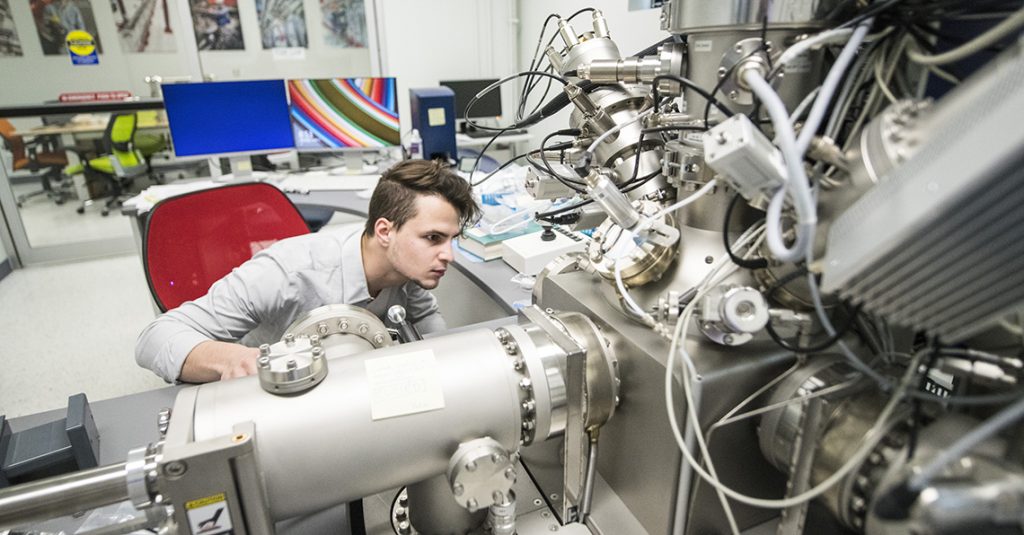
Materials science
SQMS researchers use a broad array of techniques to dissect cavities and qubits of varying performance levels. Adopting a similar methodology pioneered by the Fermilab SRF group, scientists work to expand the performance of quantum devices through materials characterization experiments that both support fundamental physics measurements and provide insight into into the nanoscale and atomic-scale mechanisms limiting quantum coherence.
Algorithms, simulations and benchmarking
The SQMS Center quantum computing platforms will offer a powerful new alternative to simulation techniques used by classical computers. In a co-design cycle with hardware development, researchers are tailoring algorithms to efficiently process information on these platforms. Applications range from fundamental physics simulations for high-energy and condensed-matter physics to other applications, such as finance and MRI technology. Researchers will also facilitate commercial applications and benchmark computational capabilities of hardware.
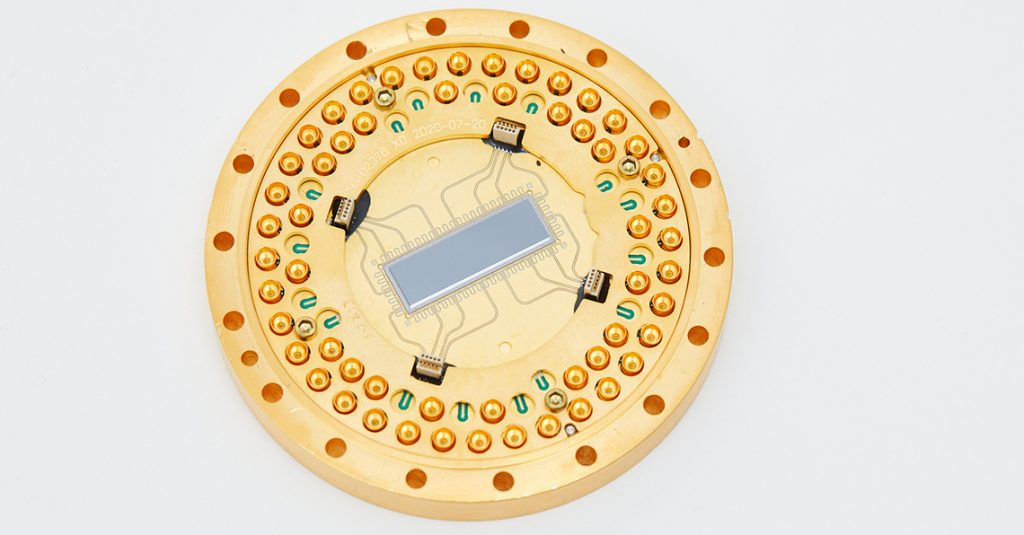
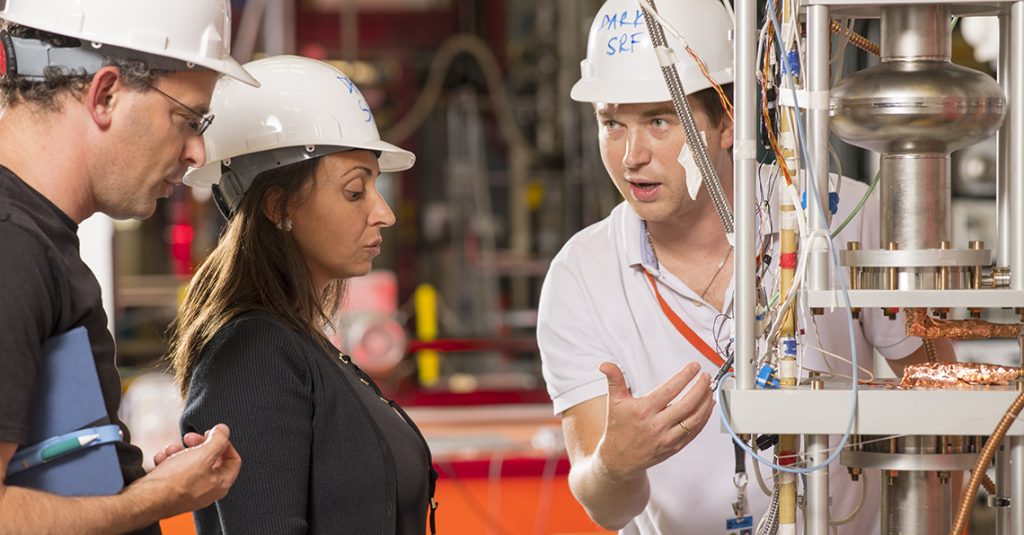
Quantum sensing for fundamental physics
SQMS researchers are combining cavities and the technology at the heart of superconducting quantum computers to answer fundamental physics questions. Within the quantum sensing thrust, researchers are developing experiments based on novel quantum devices to search for particles beyond the Standard Model, dark matter candidates, gravitational waves and fundamental material properties. The exquisite sensitivity of the Center’s high-coherence devices, combined with the power of quantum physics, offers new platforms with reach into unexplored regimes.
Quantum ecosystem
SQMS is creating a space and a community to train and educate the next generation of researchers to advance the field of quantum information science. This is accomplished by providing opportunities and leveraging partnerships between the multidisciplinary SQMS network within the Chicagoland area, throughout the state of Illinois and across the globe. The Center strives to make quantum information science accessible to everyone.
